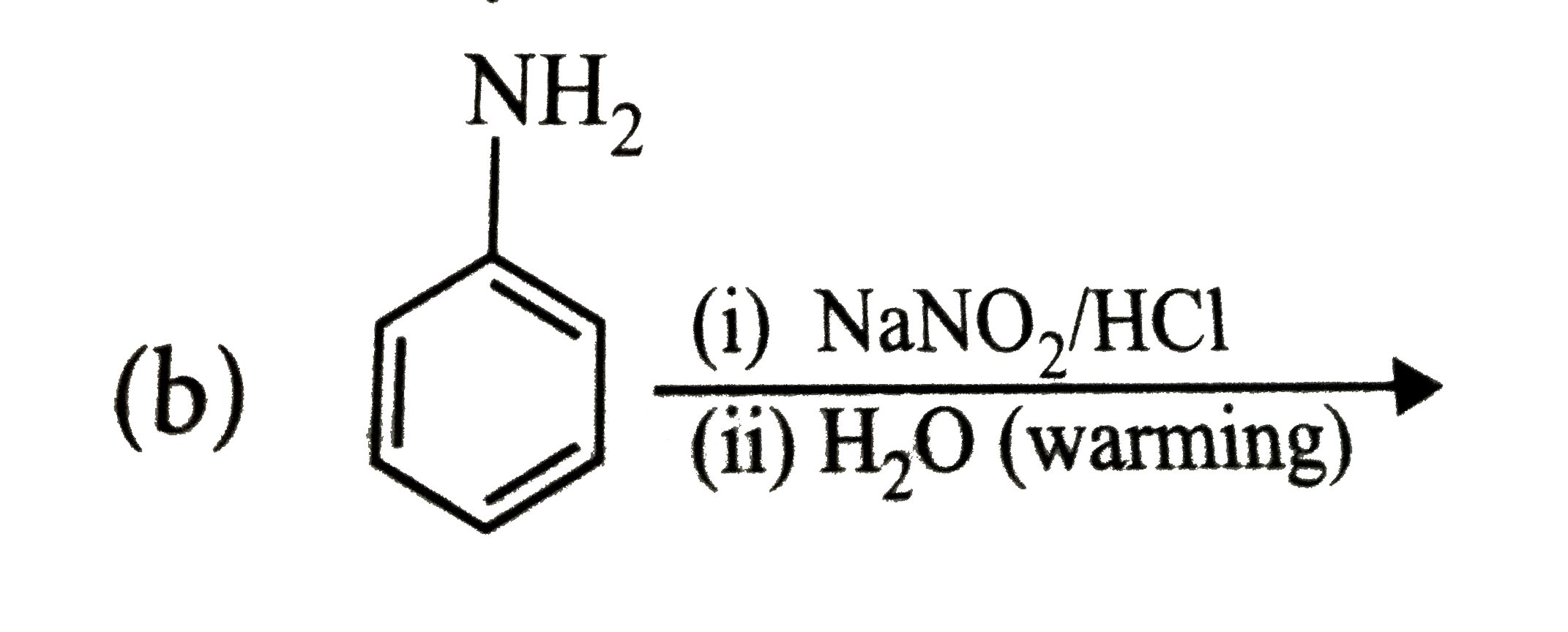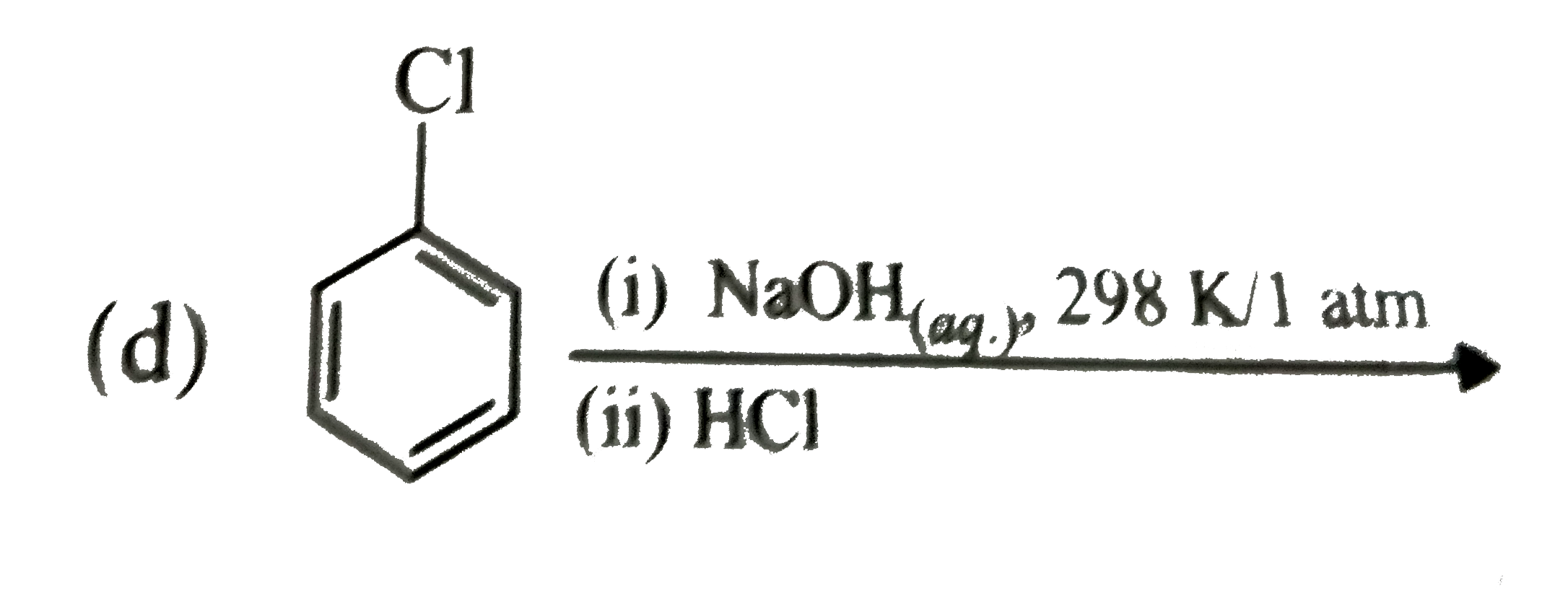For the endothermic reactionA2⇔2A, which of the following will increase yield of monomer?
Increase in both temperature and concentration of reactant
Increase in temperature and decrease in concentration of reactant.
Decrease in temperature and increase in concentration of reactant.
Decrease in both temperature and concentration of reactant.
The correct Answer is:A
To solve the question regarding the endothermic reaction A2⇌2A and determine which condition will increase the yield of the monomer A, we can follow these steps:
1. Identify the Reaction: The reaction given is A2⇌2A. Here, A2 is the dimer (polymer) and A is the monomer.
2. Determine the Nature of the Reaction: The reaction is endothermic, which means it absorbs heat. In an endothermic reaction, heat can be considered a reactant.
3. Apply Le Chatelier's Principle: According to Le Chatelier's principle, if a system at equilibrium is subjected to a change in concentration, temperature, or pressure, the equilibrium will shift in a direction that counteracts the change.
4. Analyze Each Option:
- Option 1: Increase in both temperature and concentration of reactant.
- Increasing concentration of A2 will shift the equilibrium to the right (forward direction) to produce more A.
- Increasing temperature will also favor the endothermic reaction, shifting the equilibrium to the right.
- Conclusion: This option will increase the yield of monomer A.
- Option 2: Increase in temperature and decrease in concentration of reactant.
- Increasing temperature favors the forward reaction, but decreasing concentration of A2 will shift the equilibrium to the left (backward direction).
- Conclusion: This option will not increase the yield of monomer A.
- Option 3: Decrease in temperature and increase in concentration of reactant.
- Decreasing temperature will favor the exothermic direction (backward reaction), while increasing concentration of A2 will favor the forward reaction.
- However, the decrease in temperature will dominate and shift the equilibrium to the left.
- Conclusion: This option will not increase the yield of monomer A.
- Option 4: Decrease in both temperature and concentration of reactant.
- Decreasing temperature will favor the backward reaction, and decreasing concentration of A2 will also shift the equilibrium to the left.
- Conclusion: This option will not increase the yield of monomer A.
5. Final Conclusion: The only option that increases the yield of monomer A is Option 1: Increase in both temperature and concentration of reactant.
- Option 1: Increase in both temperature and concentration of reactant.
- Increasing concentration of A2 will shift the equilibrium to the right (forward direction) to produce more A.
- Increasing temperature will also favor the endothermic reaction, shifting the equilibrium to the right.
- Conclusion: This option will increase the yield of monomer A.
- Option 2: Increase in temperature and decrease in concentration of reactant.
- Increasing temperature favors the forward reaction, but decreasing concentration of A2 will shift the equilibrium to the left (backward direction).
- Conclusion: This option will not increase the yield of monomer A.
- Option 3: Decrease in temperature and increase in concentration of reactant.
- Decreasing temperature will favor the exothermic direction (backward reaction), while increasing concentration of A2 will favor the forward reaction.
- However, the decrease in temperature will dominate and shift the equilibrium to the left.
- Conclusion: This option will not increase the yield of monomer A.
- Option 4: Decrease in both temperature and concentration of reactant.
- Decreasing temperature will favor the backward reaction, and decreasing concentration of A2 will also shift the equilibrium to the left.
- Conclusion: This option will not increase the yield of monomer A.
Similar Questions
Knowledge Check
Which of the following reactions will not yield phenol ?
A B
B C
C D
D
Which of the following reactions will yield 2, 2-dibromopropane ?
View SolutionWhich of the following reaction is endothermic?
View SolutionWhich of the following reaction is endothermic?
View SolutionWhich of the following is an endothermic reaction?
View SolutionWhich of the following process is not endothermic?
View SolutionWhich of the following is endothermic process :
View SolutionFor the reaction N2O4(g)⇔2NO2(g), which of the following factors will have no effect on the value of equilibrium constant?
View Solution
